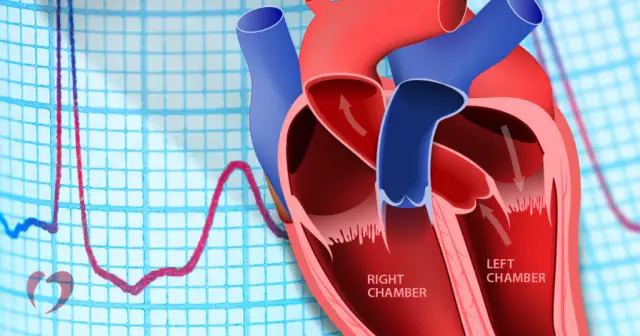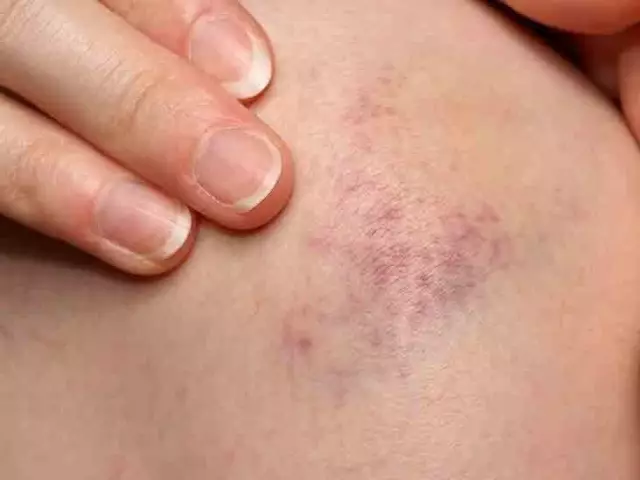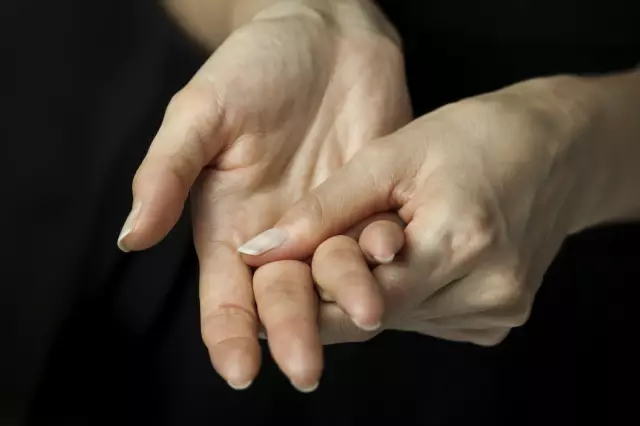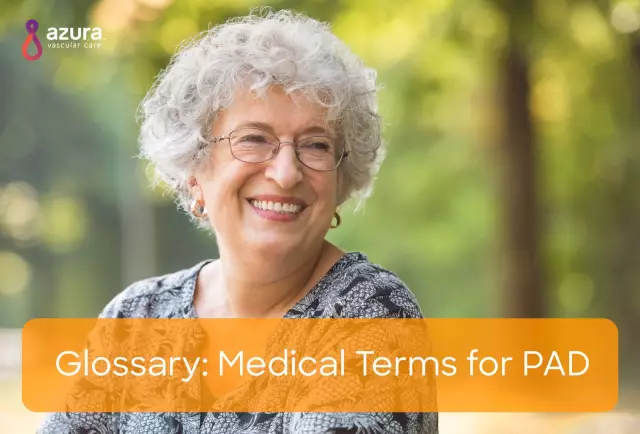- Author Rachel Wainwright wainwright@abchealthonline.com.
- Public 2023-12-15 07:39.
- Last modified 2025-11-02 20:14.
Atrioventricular block

An atrioventricular block is a violation of the conduction of an electrical impulse through the atrioventricular node located between the ventricles of the heart and its atria.
Clinical symptoms of atrioventricular block
Atrioventricular block, depending on the characteristics of the violation of the conduction of an electrical impulse, is divided into several degrees:
- With atrioventricular block of 1 degree, the impulse is carried out with a slowdown;
- Atrioventricular block of the 2nd degree is caused by periodic impulse conduction;
- The complete absence of electrical impulse conduction leads to the development of grade 3 atrioventricular block.
With atrioventricular block of 1 degree, the impulse passes from the atria to the ventricles with a delay of milliseconds. This delay does not manifest itself clinically and can only be detected by cardiac electrocardiography. Atrioventricular blockade of this degree is often observed in absolutely healthy people - adolescents, athletes, as well as in people with high excitability of the vagus nerve. But it can also be observed in people suffering from rheumatism, sarcoidosis. Grade 1 atrioventricular block is sometimes caused by certain drugs.
With atrioventricular block of the 2nd degree, not all impulses coming from the atria reach the ventricles. As a result, the ventricles begin to contract at an irregular rhythm and less frequently than the atria. Atrioventricular block of the 2nd degree in the absence of timely treatment can rapidly progress and turn into atrioventricular block of the 3rd degree, which is one of the most dangerous types of cardiac arrhythmias.
With atrioventricular block of 3 degrees, the rhythm of the ventricles is set directly by the ventricles themselves, because the electrical impulse from the atria to them does not pass through the atrioventricular node. As a result, the ventricles contract less than 40 times per minute, and the pumping function of the heart is sharply impaired.
With this pathology, patients have bradycardia (a decrease in the number of heart contractions), severe dizziness and fainting, blood pressure is usually reduced, even with little physical exertion, severe shortness of breath occurs.
The reasons for the development of atrioventricular block:
- Heart disease (coronary heart disease, myocardial infarction, postinfarction cardiosclerosis, heart defects, cardiomyopathy, myocarditis, etc.);
- Taking certain medications (intravenous papaverine solution, cardiac glycosides, antiarrhythmic drugs, beta-blockers);
- Intense sports.
Diagnostics
The diagnosis of the disease is based on its clinical symptoms. Heart electrocardiography (ECG) is done to confirm the diagnosis.
Treatment of atrioventricular block

Therapy for this type of cardiac arrhythmia is carried out depending on the degree of the disease.
Atrioventricular block of the 1st degree, even in those cases when its development is due to any heart disease, does not require any treatment.
Atrioventricular block of the 2nd degree in most cases also does not require any therapy. And only a small percentage of patients need a pacemaker.
Treatment of grade 3 atrioventricular block consists in the implantation of a pacemaker. In critical situations, a temporary pacemaker is used, and after stabilizing the heart rate and improving the general condition of the patient, a surgical operation is performed to install a permanent one. In some cases, after recovery from the disease that caused the development of atrioventricular block, the heart rate is fully restored. But most patients require lifelong use of a pacemaker.
YouTube video related to the article:
The information is generalized and provided for informational purposes only. At the first sign of illness, see your doctor. Self-medication is hazardous to health!






